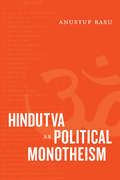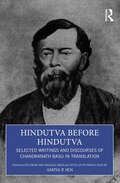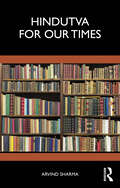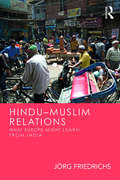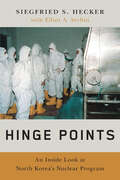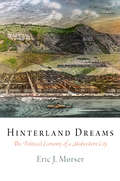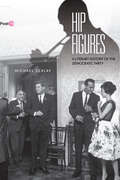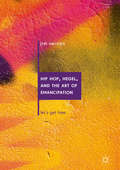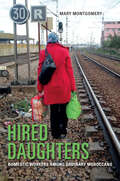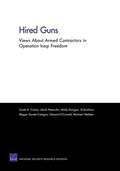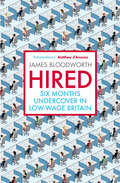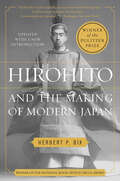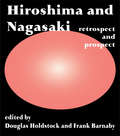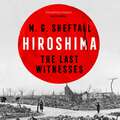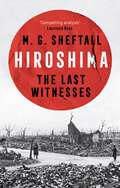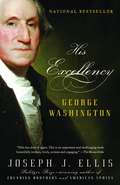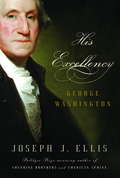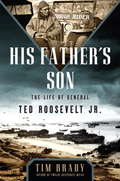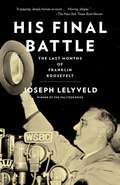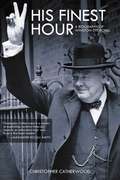- Table View
- List View
Hindutva as Political Monotheism
by Anustup BasuIn Hindutva as Political Monotheism, Anustup Basu offers a genealogical study of Hindutva—Hindu right-wing nationalism—to illustrate the significance of Western anthropology and political theory to the idea of India as a Hindu nation. Connecting Nazi jurist Carl Schmitt's notion of political theology to traditional theorems of Hindu sovereignty and nationhood, Basu demonstrates how Western and Indian theorists subsumed a vast array of polytheistic, pantheistic, and henotheistic cults featuring millions of gods into a singular edifice of faith. Basu exposes the purported “Hindu Nation” as itself an orientalist vision by analyzing three crucial moments: European anthropologists’ and Indian intellectuals’ invention of a unified Hinduism during the long nineteenth century; Indian ideologues’ adoption of ethnoreligious nationalism in pursuit of a single Hindu way of life in the twentieth century; and the transformations of this project in the era of finance capital, Bollywood, and new media. Arguing that Hindutva aligns with Enlightenment notions of nationalism, Basu foregrounds its significance not just to Narendra Modi's right-wing, anti-Muslim government but also to mainstream Indian nationalism and its credo of secularism and tolerance.
Hindutva before Hindutva: Selected Writings and Discourses of Chandranath Basu in Translation
by Amiya P. SenThis book weaves the past with the present to trace and analyze the distinctive but reiterative evocations of Hindutva ideology in the modern-colonial period. It studies the concept of Hindutva as understood by its first major spokesperson Chandranath Basu, a formidable late nineteenth-century scholar-critic. The author examines the new rhetoric that has shaped Hindu ideologies in a colonial-modern context by foregrounding debates between Chandranath Basu and radical revisionists such as Rabindranath Tagore. It provides original translations of Basu’s works and brings to light a long-neglected professional literary critic.A unique contribution, this book will be an essential read for scholars and researchers of religion studies, history, postcolonialism, literature, Indian political thought, Indian history, political science, Hindu studies, Hindusim, sociology and political ideology, and South Asian studies.
Hindutva for Our Times
by Arvind SharmaThis book studies Hindu nationalism and deliberates on the forms Hindu self-assertion might take in the future. It examines the intersection of Hindu nationalism with the contemporary reality of India, as represented by a religiously plural society with a secular state, which possesses a social system characterised by caste, and one whose vision has been shaped by a mainstream version of Indian history. The ideology of Hindutva has had two major orientations—of how Hindus should relate to each other, and how Hindus should relate to the followers of other religions. The author provides a new orientation to both these dimensions of Hindutva ideology.A unique contribution, this book will be an essential read for scholars and researchers of religion studies, history, postcolonialism, nationalism, pluralism, Indian political thought, Indian history, caste studies, political science, Hindu studies, Hindusim, sociology and political ideology, and South Asian studies.
Hindu–Muslim Relations: What Europe Might Learn from India
by Jörg FriedrichsThis book reconstructs Hindu–Muslim relations from a European standpoint. Drawing from the Indian context, the author explores options for Western Europe – a region grappling with the refugee crisis and populist reactions to the growth of Muslim minorities. The author shows how India can serve not only as a model but also as a warning for Europe. For example, European liberals may learn not only from the achievements of Indian secularism but also from its crisis. Based on extensive interviews with Indians from diverse backgrounds, from politicians to social activists and from the middle class to slum dwellers, the volume investigates a wide range of perspectives: Hindu and Muslim, religious and secular, moderate and militant. Relevant, engaging and accessible, this book speaks to a broad audience of concerned citizens and policy makers. Scholars of political science, sociology, modern history, cultural studies and South Asian studies will be particularly interested.
Hinge Points: An Inside Look at North Korea's Nuclear Program
by Siegfried S. HeckerNorth Korea remains a puzzle to Americans. How did this country—one of the most isolated in the world and in the policy cross hairs of every U.S. administration during the past 30 years—progress from zero nuclear weapons in 2001 to a threatening arsenal of perhaps 50 such weapons in 2021? Hinge Points brings readers literally inside the North Korean nuclear program, joining Siegfried Hecker to see what he saw and hear what he heard in his visits to North Korea from 2004 to 2010. Hecker goes beyond the technical details—described in plain English from his on-the-ground experience at the North's nuclear center at Yongbyon—to put the nuclear program exactly where it belongs, in the context of decades of fateful foreign policy decisions in Pyongyang and Washington. Describing these decisions as "hinge points," he traces the consequences of opportunities missed by both sides.The result has been that successive U.S. administrations have been unable to prevent the North, with the weakest of hands, from becoming one of only three countries in the world that might target the United States with nuclear weapons. Hecker's unique ability to marry the technical with the diplomatic is well informed by his interactions with North Korean and U.S. officials over many years, while his years of working with Russian, Chinese, Indian, and Pakistani nuclear officials have given him an unmatched breadth of experience from which to view and interpret the thinking and perspective of the North Koreans.
Hinter den Nachrichtenbildern: Warum wir unseren Augen nicht (immer) trauen können
by Michael Wegener Mirco LiefkeNachrichtenbilder prägen unsere Vorstellung der Wirklichkeit – doch wie entstehen sie? Dieses Buch nimmt die Stärken und Schwächen des globalen Nachrichtenjournalismus unter die Lupe und geht Fragen nach, die in unserer Informationsgesellschaft von entscheidender Bedeutung sind: Warum sehen wir aus manchen Regionen dieser Welt immer dieselben Nachrichtenbilder - und aus anderen gar keine? Wie arbeiten die großen Bildnachrichtenagenturen und wie bestimmen sie so die Bilder in Sendungen wie „Tagesschau“ und „heute-Nachrichten“? Wie wird in den Redaktionen entschieden, welche Bilder gesendet werden und wie wird geprüft, ob diese auch wirklich authentisch sind? Fragen wie diese beantworten die Autoren vor dem Hintergrund bekannter und weniger bekannter Nachrichtengeschichten. Auf anschauliche und zugleich theoretisch reflektierende Weise vermitteln sie, wie Redaktionen tagtäglich auf Wahrheitssuche gehen und zeigen auf, wie wirtschaftliche und politische Zwänge unser Bild der Welt trüben können.
Hinterland Dreams: The Political Economy of a Midwestern City (American Business, Politics, and Society)
by Eric J. MorserIn the 1840s, La Crosse, Wisconsin, was barely more than a trading post nestled on the banks of the Mississippi River. But by 1900 the sleepy frontier town had become a thriving city. Hinterland Dreams tracks the growth of this community and shows that government institutions and policies were as important as landscapes and urban boosters in determining the small Midwestern city's success. The businessmen and -women of La Crosse worked hard to attract government support during the nineteenth century. Federal, state, and municipal officials passed laws, issued rulings, provided resources, vested aldermen with financial and regulatory power, and created a lasting legal foundation that transformed the city and its economy. As historian Eric J. Morser demonstrates, the development of La Crosse and other small cities linked rural people to the wider world and provided large cities like Chicago with the lumber and other raw materials needed to grow even larger. He emphasizes the role of these municipalities, as well as their relationship to all levels of government, in the life of an industrializing nation.Punctuated with intriguing portraits of La Crosse's early citizens, Hinterland Dreams suggests a new way to understand the Midwest's urban past, one that has its roots in the small but vibrant cities that dotted the landscape. By mapping the richly textured political economy of La Crosse before 1900, the book highlights how the American state provided hinterland Midwesterners with potent tools to build cities and help define their region's history in profound and lasting ways.
Hip Figures: A Literary History of the Democratic Party
by Michael SzalayHip Figuresdramatically alters our understanding of the postwar American novel by showing how it mobilized fantasies of black style on behalf of the Democratic Party. Fascinated by jazz, rhythm and blues, and rock and roll, novelists such as Norman Mailer, Ralph Ellison, John Updike, and Joan Didion turned to hip culture to negotiate the voter realignments then reshaping national politics. Figuratively transporting white professionals and managers into the skins of African Americans, these novelists and many others insisted on their own importance to the ambitions of a party dependent on coalition-building but not fully committed to integration. Arbiters of hip for readers who weren't, they effectively branded and marketed the liberalism of their moment-and ours.
Hip Hop, Hegel, and the Art of Emancipation: Let's Get Free
by Jim VernonThis book argues that Hip Hop’s early history in the South Bronx charts a course remarkably similar to the conceptual history of artistic creation presented in Hegel’s Lectures on Aesthetics. It contends that the resonances between Hegel’s account of the trajectory of art in general, and the historical shifts in the particular culture of Hip Hop, are both numerous and substantial enough to make us re-think not only the nature and import of Hegel’s philosophy of art, but the origin, essence and lesson of Hip Hop. As a result, the book articulates and defends a unique reading of Hegel’s Aesthetics, as well as providing a philosophical explanation of the Hip Hop community’s transition from total social abandonment to some limited form of social inclusion, via the specific mediation of an artistic culture grounded in novel forms of sensible expression. Thus, the fundamental thesis of this book is that Hegel and Hip Hop are mutually illuminating, and when considered in tandem each helps to clarify and reinforce the validity and power of the other.
Hired Daughters: Domestic Workers among Ordinary Moroccans
by Mary MontgomeryAn analysis of the customs and traditions of employing household help in Morocco, and the evolving rural and urban views toward domestic servitude.Hired Daughters examines a fading tradition of domestic service in which rural girls familiar to ordinary Moroccan families were placed in their homes until marriage. In this tradition of “bringing up,” the girls are considered “daughters of the house,” and part of their role in the family is to help with the housework. Gradually, this tradition is transforming into one in which workers unfamiliar to their host families are paid a wage and may not stay long, but where the Islamic ethics of charity, religious reward, and gratitude still inform expectations on both sides.Mary Montgomery examines why Moroccans so often talk about their domestic workers as daughters, what this means for workers and employers, and how this is changing in contemporary Morocco. Prioritizing the experiences and perspectives of these women, Montgomery charts the tension that has developed between socially embedded, loyal domestic workers who operate within narratives of kinship and obligation and women who seek greater individualization, privacy, and self-empowerment. Hired Daughters offers a nuanced understanding of a world that bridges public and private, morality and money, family and outsiders. In doing so, it provides an intimate consideration of contemporary Moroccan households as economic enterprises and sites of navigation between the traditional and the global.
Hired Guns
by Sarah K. Cotton Megan Zander-Cotugno Q Burkhart Ulrich Petersohn Molly DuniganThis study reports the results of a systematic, empirically based survey of opinions of U.S. military and State Department personnel with Iraq war experience to shed light on the costs and benefits of using private security contractors (PSCs) in the Iraq war. For the most part, respondents did not believe that PSCs were "running wild" in Iraq, but they held mixed views on PSCs' contribution to the U.S. military operation and U.S. foreign policy objectives.
Hired: Six Months Undercover in Low-Wage Britain
by James BloodworthTHE SHOCKING INSIDE STORY OF THE GIG ECONOMY, AS ENDORSED BY BERNIE SANDERS A powerful and revelatory piece of journalism that exposes the exploitation at the heart of the low-wage economy. We all define ourselves by our profession. But what if our job was demeaning, poorly paid, and tedious? Cracking open the gig economy, journalist James Bloodworth spends six months undercover working the most grueling low-wage jobs. He lives on the meagre proceeds and discovers the anxieties and hopes of those he encounters, including working-class men and women, young students striving to make ends meet, and Eastern European immigrants. From a harrowing Amazon warehouse to Uber taxi-cabs, Bloodworth uncovers horrifying employment practices and shows how traditional working-class communities have been decimated by the move to soulless service jobs with no security, advancement or satisfaction. But this is more than an exposÉ of unscrupulous employers; this is a gripping examination of a divided society which needs to understand the true reality of how other people live and work, before it can heal.
Hirohito And The Making Of Modern Japan
by Herbert P BixWinner of the Pulitzer PrizeIn this groundbreaking biography of the Japanese emperor Hirohito, Herbert P. Bix offers the first complete, unvarnished look at the enigmatic leader whose sixty-three-year reign ushered Japan into the modern world. Never before has the full life of this controversial figure been revealed with such clarity and vividness. Bix shows what it was like to be trained from birth for a lone position at the apex of the nation's political hierarchy and as a revered symbol of divine status. Influenced by an unusual combination of the Japanese imperial tradition and a modern scientific worldview, the young emperor gradually evolves into his preeminent role, aligning himself with the growing ultranationalist movement, perpetuating a cult of religious emperor worship, resisting attempts to curb his power, and all the while burnishing his image as a reluctant, passive monarch. Here we see Hirohito as he truly was: a man of strong will and real authority.Supported by a vast array of previously untapped primary documents, Hirohito and the Making of Modern Japan is perhaps most illuminating in lifting the veil on the mythology surrounding the emperor's impact on the world stage. Focusing closely on Hirohito's interactions with his advisers and successive Japanese governments, Bix sheds new light on the causes of the China War in 1937 and the start of the Asia-Pacific War in 1941. And while conventional wisdom has had it that the nation's increasing foreign aggression was driven and maintained not by the emperor but by an elite group of Japanese militarists, the reality, as witnessed here, is quite different. Bix documents in detail the strong, decisive role Hirohito played in wartime operations, from the takeover of Manchuria in 1931 through the attack on Pearl Harbor and ultimately the fateful decision in 1945 to accede to an unconditional surrender. In fact, the emperor stubbornly prolonged the war effort and then used the horrifying bombings of Hiroshima and Nagasaki, together with the Soviet entrance into the war, as his exit strategy from a no-win situation. From the moment of capitulation, we see how American and Japanese leaders moved to justify the retention of Hirohito as emperor by whitewashing his wartime role and reshaping the historical consciousness of the Japanese people. The key to this strategy was Hirohito's alliance with General MacArthur, who helped him maintain his stature and shed his militaristic image, while MacArthur used the emperor as a figurehead to assist him in converting Japan into a peaceful nation. Their partnership ensured that the emperor's image would loom large over the postwar years and later decades, as Japan began to make its way in the modern age and struggled -- as it still does -- to come to terms with its past.Until the very end of a career that embodied the conflicting aims of Japan's development as a nation, Hirohito remained preoccupied with politics and with his place in history. Hirohito and the Making of Modern Japan provides the definitive account of his rich life and legacy. Meticulously researched and utterly engaging, this book is proof that the history of twentieth-century Japan cannot be understood apart from the life of its most remarkable and enduring leader.
Hiroshima
by Ran ZwigenbergIn 1962, a Hiroshima peace delegation and an Auschwitz survivor's organization exchanged relics and testimonies, including the bones and ashes of Auschwitz victims. This symbolic encounter, in which the dead were literally conscripted in the service of the politics of the living, serves as a cornerstone of this volume, capturing how memory was utilized to rebuild and redefine a shattered world. This is a powerful study of the contentious history of remembrance and the commemoration of the atomic bomb in Hiroshima in the context of the global development of Holocaust and World War II memory. Emphasizing the importance of nuclear issues in the 1950s and 1960s, Zwigenberg traces the rise of global commemoration culture through the reconstruction of Hiroshima as a 'City of Bright Peace', memorials and museums, global tourism, developments in psychiatry, and the emergence of the figure of the survivor-witness and its consequences for global memory practices.
Hiroshima and Nagasaki: Restrospect and Prospect
by Frank Barnaby Douglas HoldstockFify-three years ago the first nuclear bombs were dropped on Hiroshima and Nagasaki. They killed some 250,000 poeple. A distinguished group of contributors examine the background and effects of the bombing and look at the lessons for a world which harbours 45,000 nuclear warheads.
Hiroshima-75: Nuclear Issues in Global Contexts
by David Marples Fujiwara Aya75 years after the United States dropped the world’s first atomic bombs on the Japanese cities of Hiroshima and Nagasaki, a group of international scholars offers new perspectives on this event and the history, development, and portrayal of the utilization of atomic energy: in military and civilian industries, civil nuclear power, literature and film, and the contemporary world. What lessons have we learned since the end of the Second World War? Can we avoid disasters such as Chernobyl and Fukushima? Have we learned to live with man-made nuclear power in the 21st century?
Hiroshima: The Last Witnesses
by M.G. SheftallThe stories of hibakusha - Japanese for atomic bomb survivors - lie at the heart of this compelling minute-by-minute account of 6 August 1945 - the day the world changed forever as the Enola Gay dropped its payload over Hiroshima, ushering in the nuclear age. These survivors and witnesses, now with an average age of over 90, are the last people alive who can still provide us with reliable and detailed testimony about life in Hiroshima before the bombings. In this heart-stopping account they relay what they experienced on the day the city was obliterated, and what it has been like to live with those memories and scars over the rest of their lives.M. G. Sheftall has spent years personally interviewing survivors who were just adolescents at the time but have lived well into their nineties, allowing him to construct portraits of what Hiroshima was like before the bomb, and how catastrophically its citizens' lives changed in the seconds, minutes, days, weeks, months and years afterwards. Fluent in spoken and written Japanese, his deep immersion in Japanese society has given him unprecedented access to the hibakusha in their waning years. Their trust in him is evident in the personal and traumatic depths they open up for him as he records their stories.The result is a deeply human history of an unfathomable tragedy, which continues to haunt the world today.
Hiroshima: The Last Witnesses
by M.G. SheftallThe stories of hibakusha - Japanese for atomic bomb survivors - lie at the heart of this compelling minute-by-minute account of 6 August 1945 - the day the world changed forever as the Enola Gay dropped its payload over Hiroshima, ushering in the nuclear age. These survivors and witnesses, now with an average age of over 90, are the last people alive who can still provide us with reliable and detailed testimony about life in Hiroshima before the bombings. In this heart-stopping account they relay what they experienced on the day the city was obliterated, and what it has been like to live with those memories and scars over the rest of their lives.M. G. Sheftall has spent years personally interviewing survivors who were just adolescents at the time but have lived well into their nineties, allowing him to construct portraits of what Hiroshima was like before the bomb, and how catastrophically its citizens' lives changed in the seconds, minutes, days, weeks, months and years afterwards. Fluent in spoken and written Japanese, his deep immersion in Japanese society has given him unprecedented access to the hibakusha in their waning years. Their trust in him is evident in the personal and traumatic depths they open up for him as he records their stories.The result is a deeply human history of an unfathomable tragedy, which continues to haunt the world today.
His Excellency, George Washington
by Joseph J. EllisTo this landmark biography of our first president, Joseph J. Ellis brings the exacting scholarship, shrewd analysis, and lyric prose that have made him one of the premier historians of the Revolutionary era. Training his lens on a figure who sometimes seems as remote as his effigy on Mount Rushmore, Ellis assesses George Washington as a military and political leader and a man whose statue-like solidity concealed volcanic energies and emotions. Here is the impetuous young officer whose miraculous survival in combat half-convinced him that he could not be killed. Here is the free-spending landowner whose debts to English merchants instilled him with a prickly resentment of imperial power. We see the general who lost more battles than he won and the reluctant president who tried to float above the partisan feuding of his cabinet. His Excellency is a magnificent work, indispensable to an understanding not only of its subject but also of the nation he brought into being.
His Excellency: George Washington
by Joseph J. EllisNational BestsellerTo this landmark biography of our first president, Joseph J. Ellis brings the exacting scholarship, shrewd analysis, and lyric prose that have made him one of the premier historians of the Revolutionary era. Training his lens on a figure who sometimes seems as remote as his effigy on Mount Rushmore, Ellis assesses George Washington as a military and political leader and a man whose "statue-like solidity" concealed volcanic energies and emotions. Here is the impetuous young officer whose miraculous survival in combat half-convinced him that he could not be killed. Here is the free-spending landowner whose debts to English merchants instilled him with a prickly resentment of imperial power. We see the general who lost more battles than he won and the reluctant president who tried to float above the partisan feuding of his cabinet. His Excellency is a magnificent work, indispensable to an understanding not only of its subject but also of the nation he brought into being.From the Trade Paperback edition.
His Father's Son: The Life of General Ted Roosevelt, Jr.
by Tim BradyThe story of Theodore Roosevelt, Jr., a fortunate son who proved himself on the battlefields of two world wars.General Omar Bradley said of him, “I have never known a braver man or a more devoted soldier.” But for much of his life, Theodore Roosevelt’s son Ted seemed born to live in his father’s shadow. With the same wide smile, winning charm, and vigorous demeanor, Ted possessed limitless potential, with even the White House within his reach. In the First World War, Ted braved gunfire and gas attacks in France to lead his unit into battle. Yet even after returning home a hero, he was unable to meet the expectations of a public that wanted a man just like his father. A diplomat, writer, and man of great adventure, Ted remained frustrated by his lack of success in the world of politics, witnessing instead the rise of his cousin, Franklin, to the office that had once seemed his for the taking.Then, with World War II looming, Ted reenlisted. In his mid-fifties with a gimpy leg and a heart condition, he was well past his prime, but his insistence to be in the thick of combat proved a vital asset. Paired with the irascible Terry de la Mesa Allen Sr., Ted soon distinguished himself as a front-line general in a campaign that often brought him into conflict with another hard fighter, George Patton. On D-Day, Ted became the oldest soldier and the only general in the Allied forces to storm the beach in the first wave, hobbling across the sand with his cane in one hand and a pistol in the other. His valor and leadership on Utah Beach became the stuff of legends—and earned him the Medal of Honor.His Father's Son delves into the life of a man as courageous, colorful, and unwavering as any of the Roosevelt clan, and offers up a definitive portrait of one of America’s greatest military heroes.INCLUDES PHOTOSFrom the Hardcover edition.
His Final Battle: The Last Months of Franklin Roosevelt
by Joseph Lelyveld"By far the most enigmatic leading figure" of World War II. That's how the British military historian John Keegan described Franklin D. Roosevelt, who frequently left his contemporaries guessing, never more so than at the end of his life. Here, in a hugely insightful account, a prizewinning author and journalist untangles the narrative threads of Roosevelt's final months, showing how he juggled the strategic, political, and personal choices he faced as the war, his presidency, and his life raced in tandem to their climax. The story has been told piecemeal but never like this, with a close focus on Roosevelt himself and his hopes for a stable international order after the war, and how these led him into a prolonged courtship of Joseph Stalin, the Soviet dictator, involving secret, arduous journeys to Tehran and the Crimea. In between, as the war entered its final phase, came the thunderbolt of a dire medical diagnosis, raising urgent questions about the ability of the longest-serving president to stand for a fourth term at a time when he had little choice. Neither his family nor top figures in his administration were informed of his diagnosis, let alone the public or his closest ally, Winston Churchill. With D-Day looming, Roosevelt took a month off on a plantation in the south where he was examined daily by a navy cardiologist, then waited two more months before finally announcing, on the eve of his party's convention, that he'd be a candidate. A political grand master still, he manipulated the selection of a new running mate, with an eye to a possible succession, displaying some of his old vigor and wit in a winning campaign. With precision and compassion, Joseph Lelyveld examines the choices Roosevelt faced, shining new light on his state of mind, preoccupations, and motives, both as leader of the wartime alliance and in his personal life. Confronting his own mortality, Roosevelt operated in the belief that he had a duty to see the war through to the end, telling himself he could always resign if he found he couldn't carry on. Lelyveld delivers an incisive portrait of this deliberately inscrutable man, a consummate leader to the very last. From the Hardcover edition.
His Final Battle: The Last Months of Franklin Roosevelt
by Joseph LelyveldA New York Times 2016 Notable Book"By far the most enigmatic leading figure" of World War II. That's how the British military historian John Keegan described Franklin D. Roosevelt, who frequently left his contemporaries guessing, never more so than at the end of his life. Here, in a hugely insightful account, a prizewinning author and journalist untangles the narrative threads of Roosevelt's final months, showing how he juggled the strategic, political, and personal choices he faced as the war, his presidency, and his life raced in tandem to their climax. The story has been told piecemeal but never like this, with a close focus on Roosevelt himself and his hopes for a stable international order after the war, and how these led him into a prolonged courtship of Joseph Stalin, the Soviet dictator, involving secret, arduous journeys to Tehran and the Crimea. In between, as the war entered its final phase, came the thunderbolt of a dire medical diagnosis, raising urgent questions about the ability of the longest-serving president to stand for a fourth term at a time when he had little choice. Neither his family nor top figures in his administration were informed of his diagnosis, let alone the public or his closest ally, Winston Churchill. With D-Day looming, Roosevelt took a month off on a plantation in the south where he was examined daily by a navy cardiologist, then waited two more months before finally announcing, on the eve of his party's convention, that he'd be a candidate. A political grand master still, he manipulated the selection of a new running mate, with an eye to a possible succession, displaying some of his old vigor and wit in a winning campaign. With precision and compassion, Joseph Lelyveld examines the choices Roosevelt faced, shining new light on his state of mind, preoccupations, and motives, both as leader of the wartime alliance and in his personal life. Confronting his own mortality, Roosevelt operated in the belief that he had a duty to see the war through to the end, telling himself he could always resign if he found he couldn't carry on. Lelyveld delivers an incisive portrait of this deliberately inscrutable man, a consummate leader to the very last.
His Final Battle: The Last Months of Franklin Roosevelt
by Joseph LelyveldA New York Times 2016 Notable Book“By far the most enigmatic leading figure” of World War II. That’s how the British military historian John Keegan described Franklin D. Roosevelt, who frequently left his contemporaries guessing, never more so than at the end of his life. Here, in a hugely insightful account, a prizewinning author and journalist untangles the narrative threads of Roosevelt’s final months, showing how he juggled the strategic, political, and personal choices he faced as the war, his presidency, and his life raced in tandem to their climax. The story has been told piecemeal but never like this, with a close focus on Roosevelt himself and his hopes for a stable international order after the war, and how these led him into a prolonged courtship of Joseph Stalin, the Soviet dictator, involving secret, arduous journeys to Tehran and the Crimea. In between, as the war entered its final phase, came the thunderbolt of a dire medical diagnosis, raising urgent questions about the ability of the longest-serving president to stand for a fourth term at a time when he had little choice. Neither his family nor top figures in his administration were informed of his diagnosis, let alone the public or his closest ally, Winston Churchill. With D-Day looming, Roosevelt took a month off on a plantation in the south where he was examined daily by a navy cardiologist, then waited two more months before finally announcing, on the eve of his party’s convention, that he’d be a candidate. A political grand master still, he manipulated the selection of a new running mate, with an eye to a possible succession, displaying some of his old vigor and wit in a winning campaign. With precision and compassion, Joseph Lelyveld examines the choices Roosevelt faced, shining new light on his state of mind, preoccupations, and motives, both as leader of the wartime alliance and in his personal life. Confronting his own mortality, Roosevelt operated in the belief that he had a duty to see the war through to the end, telling himself he could always resign if he found he couldn’t carry on. Lelyveld delivers an incisive portrait of this deliberately inscrutable man, a consummate leader to the very last.
His Finest Hour: A Biography of Winston Churchill (Brief History Ser.)
by Christopher CatherwoodWho was Winston Churchill? Even fifty years after his death, he is one of the most iconic figures in British history. As a young man he was a maverick journalist; his many positions in politics before 1940 marked him as a courageous but foolhardy man. Yet it is Churchill’s record in war, which has recently been questioned, that confirms his genius as a military commander and national leader—someone who understood the dangers of Nazi Germany before 1939 and someone uniquely capable to lead the empire through the turmoil of the Second World War. Christopher Catherwood argues that it was Churchill’s stand in 1940-41 that saved Britain and that only he was able to bring together the allies that eventually defeated Hitler in 1945. Catherwood has produced a challenging yet lively reassessment of the life and career of Winston Churchill, lion of British history and flawed hero.
